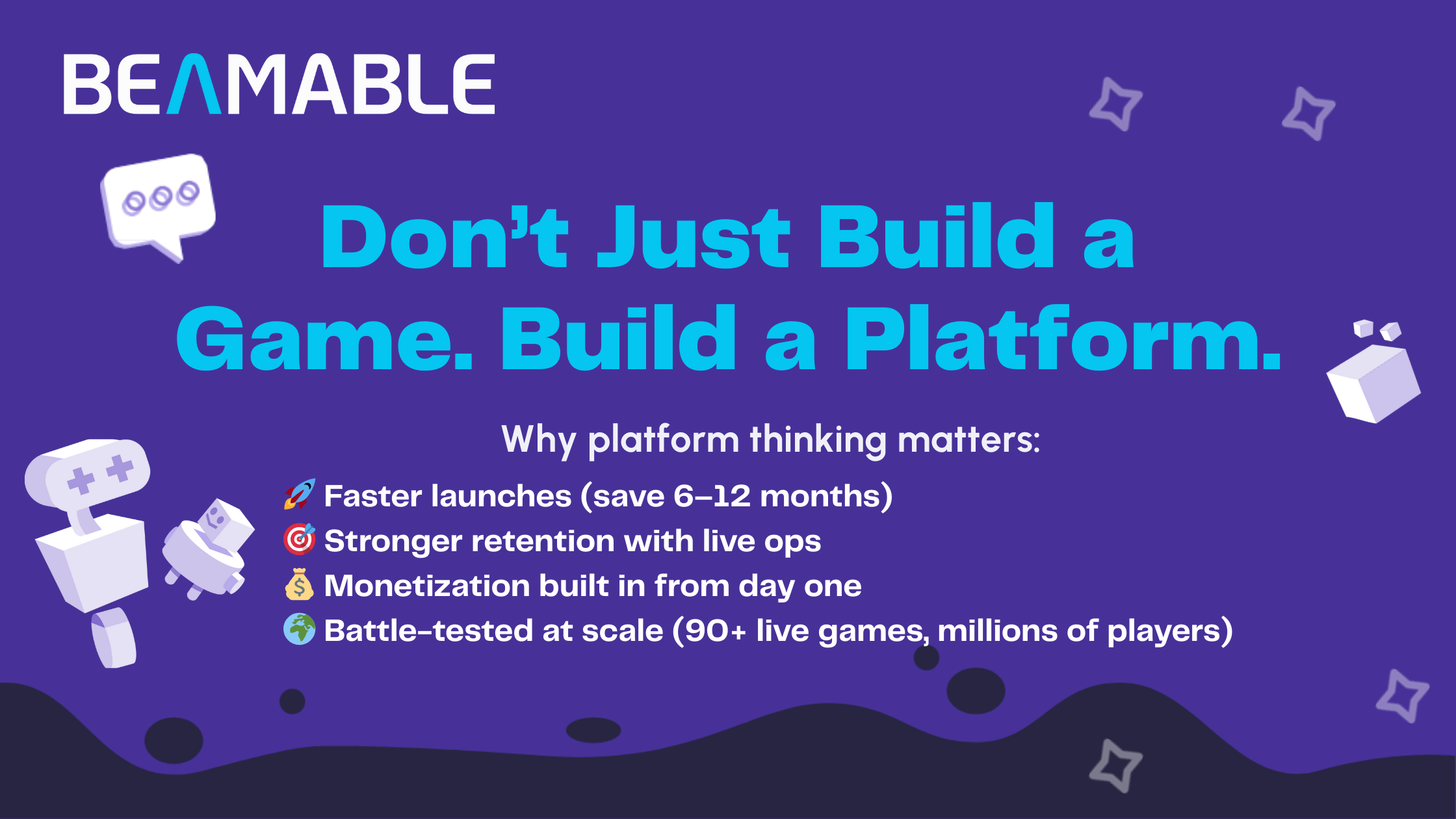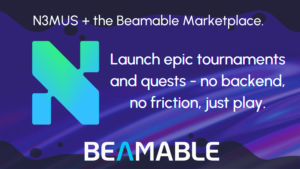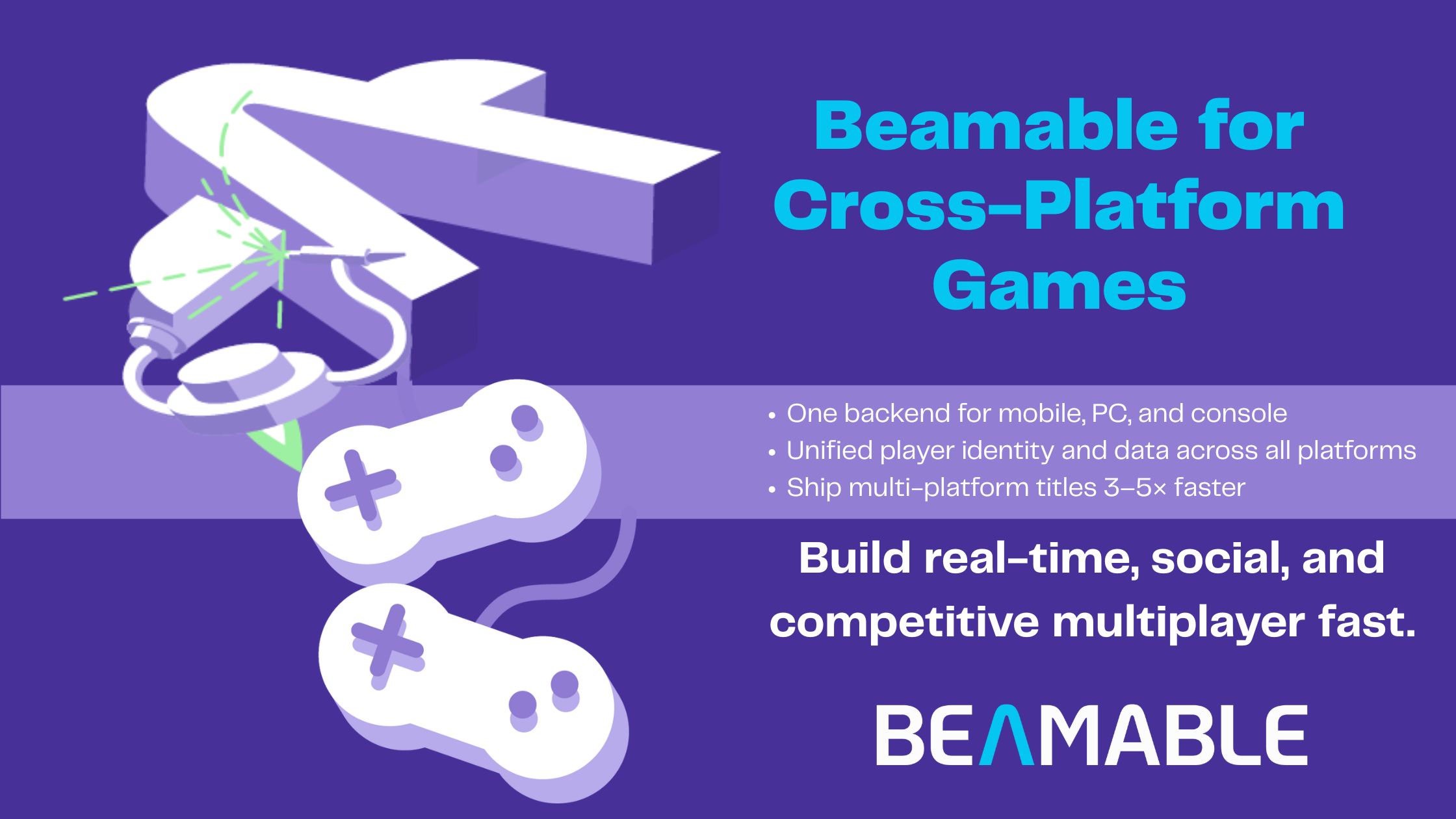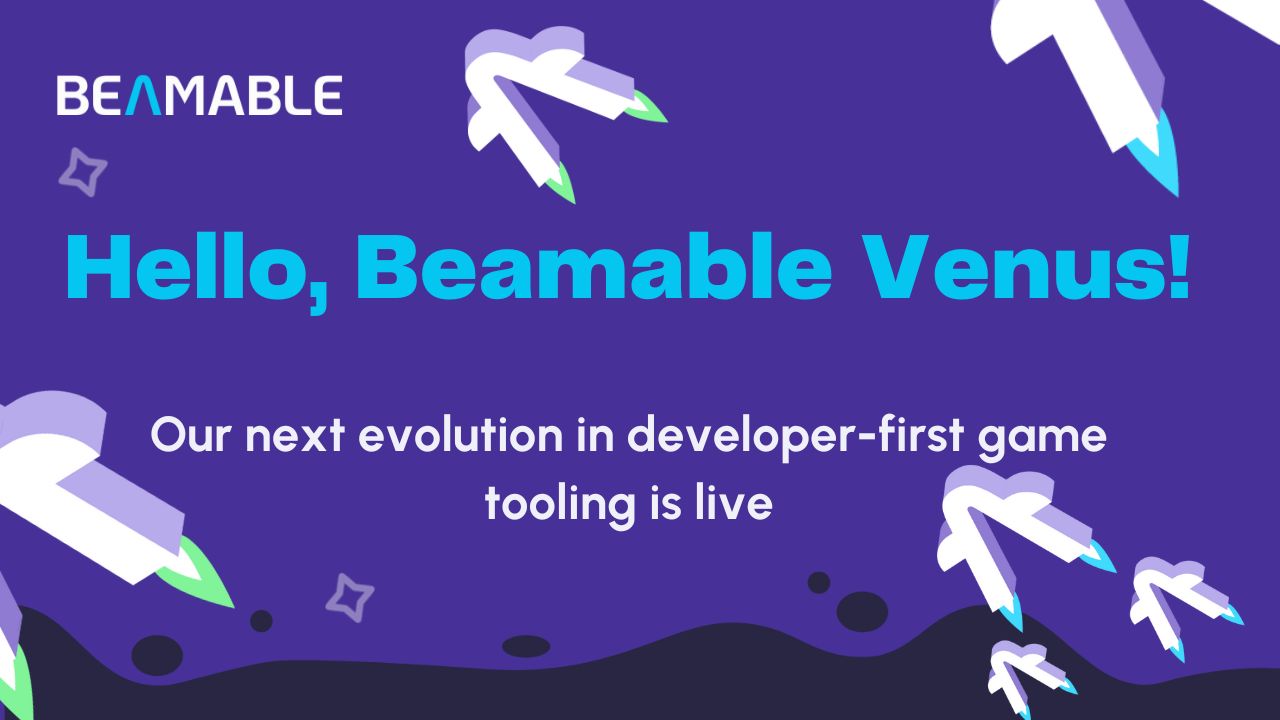Why Your Next Game Needs to Think Like a Platform, Not Just a Product

Why Your Next Game Needs to Think Like a Platform, Not Just a Product
The challenge for today’s game studios isn’t just launching — it’s lasting.
In an industry where players expect live events, social features, and constant updates, games that think like products burn bright and fade fast. Games that think like platforms evolve into ecosystems that sustain engagement, revenue, and community for years.
Look at the most successful titles of the last decade: Fortnite, Roblox, and Genshin Impact. None of them are static releases — they’re living platforms that deliver continuous value.
And Beamable-powered games like FIFA Rivals, Pudgy Party, and Star Trek Timelines prove the same mindset works across indies, mid-size teams, and AAA publishers.
Why Product Thinking Falls Short
Games built only as products often face:
🚫 A “one and done” lifecycle with limited updates.
🚫 Weak player retention after launch.
🚫 Missed revenue opportunities from unplanned monetization.
🚫 Costly rebuilds when trying to scale or pivot.
In contrast, platform-driven games are built to adapt and expand from day one.
The Platform Mindset in Action
Shifting from product thinking to platform thinking changes everything:
- Time to Market: Platforms launch faster because backend systems don’t need to be reinvented.
- Retention and Revenue: Features like live ops, commerce, and leaderboards keep players coming back.
- Future-Proofing: Flexible infrastructure allows updates, expansions, and pivots.
- Community: Players don’t just play — they participate through events, guilds, and social features.
This isn’t theoretical. It’s the proven approach behind Beamable customers who are already growing sustainable games.
How Beamable Helps Games Become Platforms
Beamable provides the infrastructure that transforms games into platforms, including:
- Accounts and authentication
- Game servers
- Commerce and stores
- Leaderboards and achievements
- Live ops and events
With Beamable, studios save months to a year of backend work, lower costs, and launch faster. Trusted by 200 studios and 4,000 developers worldwide, Beamable powers over 90 live games with 100 more in development.
From indie creators to AAA publishers, Beamable enables games to think like platforms, not products.
Proof Points from the Field
- FIFA Rivals went from prototype to global launch in under 10 months by leveraging Beamable, saving a year of backend work.
- Pudgy Party and Star Trek Timelines scale to millions of players with stable, reliable backend infrastructure.
- Bigfoot Games integrated leaderboards and player ID in weeks, accelerating live retention testing.
- Industry-wide, giants like Fortnite, Roblox, and Genshin Impact validate the platform approach — thriving because they never stop evolving.
Build Fast. Launch Smart. No Limits.
Games treated as products struggle to last. Games treated as platforms adapt, grow, and engage players for years.
Beamable helps studios make that leap — saving development time, cutting costs, and delivering the infrastructure to power sustainable success.
👉 Ready to build your next game like a platform? Get started with Beamable.
FAQ
Q1: What does “game as a platform” mean?
It means designing a game for ongoing updates, community, and monetization — not just a single launch.
Q2: Why do games like Fortnite and Roblox succeed as platforms?
They succeed because they’re built for continuous live ops, evolving content, and community-driven participation.
Q3: How does Beamable help my studio adopt this mindset?
Beamable provides ready-to-use infrastructure — accounts, commerce, servers, leaderboards, and live ops — so you can focus on gameplay while we handle the platform foundation.
Q4: What’s the risk of product-only thinking?
Games built as products often fade quickly, missing retention goals, monetization potential, and opportunities to scale.
Q5: Is building a platform harder or more expensive?
Not with Beamable. We cut months to a year of backend work, reduce costs, and give studios the flexibility to grow sustainably.




